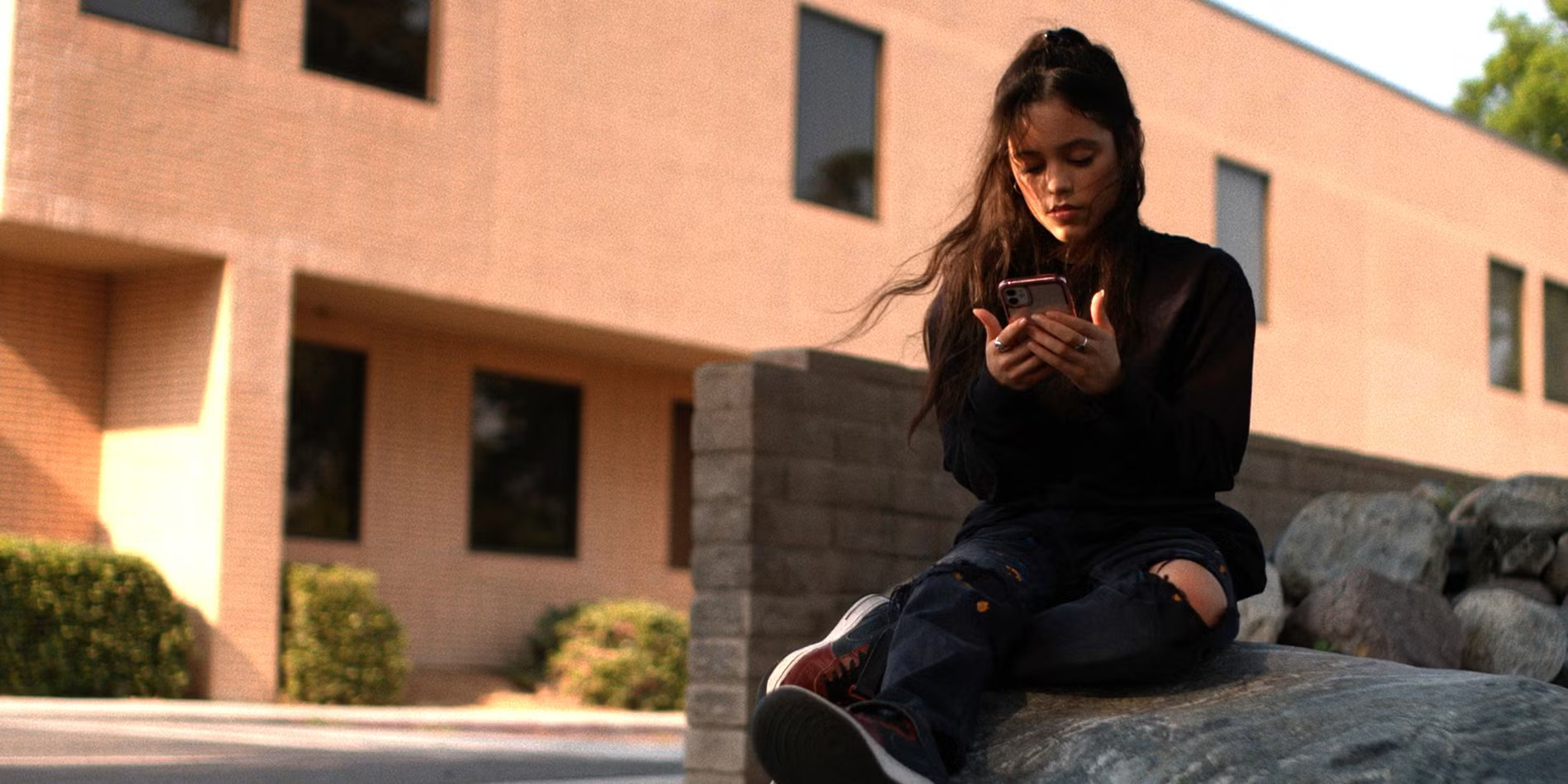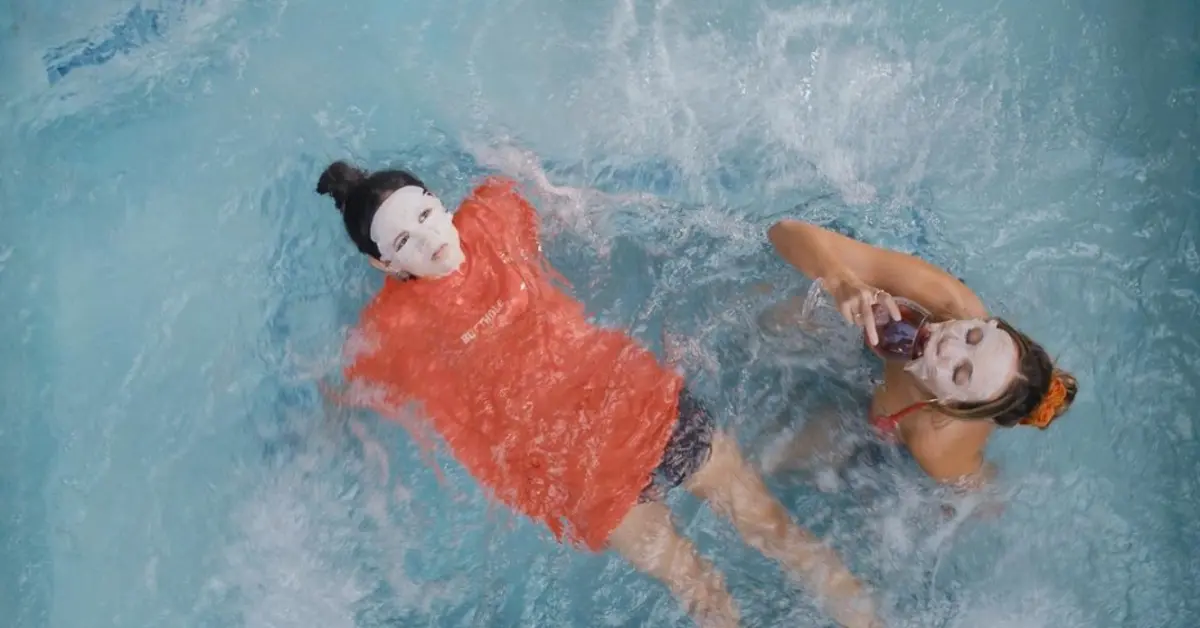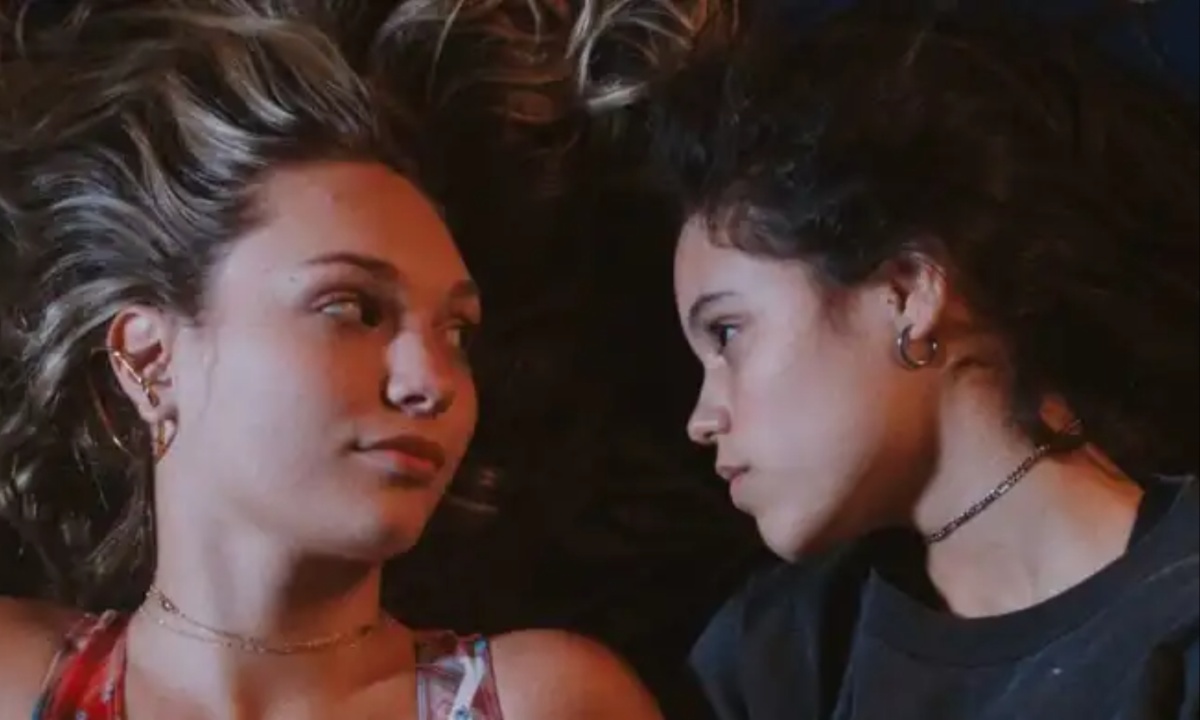The Fallout, directed by Megan Park, is a poignant and emotionally intense film that focuses on the aftermath of a school shooting. The movie follows Vada Cavell (Jenna Ortega), a teenage survivor, as she struggles to process the trauma of the event and navigate her life in the aftermath.
While Vada attempts to heal and move on, the film’s devastating ending emphasizes that emotional scars from such violence may never truly fade. The Fallout has been lauded for its authentic portrayal of trauma, its thoughtful direction, and the standout performances, particularly by Ortega.
The film begins with an off-screen school shooting that occurs within the first ten minutes. Vada, along with classmates Mia (Maddie Ziegler) and Quinton (Niles Fitch), hides in a bathroom stall as the violence unfolds. This harrowing moment sets the tone for the entire movie, as Vada is left grappling with the psychological consequences of surviving the shooting. The film shifts focus from the event itself to Vada’s emotional journey, illustrating the complexities of trauma and recovery.
As The Fallout progresses, we witness Vada’s attempts to make sense of the tragedy. Initially, she minimizes the impact the shooting has had on her, describing herself as “chill” or “low-key.” However, her behavior becomes increasingly erratic, and she starts to push away the people who care about her, including her family.
Her relationships with Mia and Quinton become tangled, with moments of physical intimacy that seem to stem more from confusion than genuine connection. Vada also turns to drugs, using substances like cannabis and ecstasy as a way to numb the emotional pain she cannot fully process.
Vada’s erratic actions reflect the complex nature of trauma. Rather than seeking traditional outlets for healing, she engages in behaviors that seem contradictory or impulsive. The Fallout portrays trauma as something that defies easy explanation, with Vada unable to reconcile her feelings of guilt, confusion, and anger.
The film does not offer quick fixes for her pain but instead explores the nuances of her emotional state. Her relationship with Mia and Quinton, both survivors of the shooting, suggests that she is searching for meaning in her life, trying to make sense of the randomness of violence.

The Devastating Ending: Trauma’s Lingering Impact
By the film’s conclusion, Vada appears to have made some progress. She reconnects with her family, resolves to stop keeping secrets, and works through her issues with Mia. However, the final moments of The Fallout serve as a brutal reminder that the effects of trauma do not vanish with time.
Just as Vada begins texting Mia, seemingly in a moment of happiness, a news alert about another school shooting in Ohio shatters her brief sense of peace. The film ends with Vada experiencing a panic attack, a stark and unsettling reminder that the trauma she carries will never fully subside.
The Fallout’s ending is devastating because it highlights a critical and ongoing issue in American society: the prevalence of school shootings. Vada’s emotional journey is not unique but rather reflective of the countless survivors of similar tragedies. The film’s portrayal of Vada’s inability to heal is linked to the continued occurrence of mass shootings.
With over 1,000 school shootings in the last 50 years, as reported by Sandy Hook Promise, Vada’s pain resonates not just as an individual experience but as part of a larger, societal crisis. The film urges reflection on the need for change in gun laws and a broader societal reckoning with the epidemic of school violence.
While Vada’s experience is central to The Fallout, the film also touches on the political dimensions of trauma. Vada’s old friend, Nick, becomes an activist for gun control, attempting to turn his grief into action. His activism serves as a response to his own survivor’s guilt, a way to make sense of the senseless violence.
This aspect of the film connects to real-world movements, such as those spearheaded by survivors of the Marjory Stoneman Douglas High School shooting. However, The Fallout does not focus solely on political messages but instead offers a subtle exploration of the many ways people cope with trauma.
The ambiguous nature of the film’s conclusion is central to its impact. While many films with traumatic subjects offer clear resolutions, The Fallout avoids this simplistic approach. If Vada had fully healed by the end of the movie, it would have undermined the complexity of trauma and recovery.
Conversely, an entirely hopeless ending would have presented a grim view of life after trauma. Instead, the film offers a middle ground, portraying Vada as someone who has made some progress but still carries the weight of her experience. This ambiguity enhances the film’s realism and allows it to stay true to the unpredictable and often non-linear nature of healing.

The Director’s Vision: A Realistic Depiction of Trauma
Megan Park, who wrote and directed The Fallout, intentionally crafted the film’s ending to reflect the ongoing nature of trauma. In an interview, Park explained that she always knew the film had to end with an acknowledgment that Vada’s recovery was far from over. The decision to cut to black during Vada’s panic attack was a deliberate choice to emphasize the internal experience of trauma without further traumatizing the audience. The closing moments serve as a reminder that, while healing may begin, the scars left by violence remain.
The Fallout has garnered critical acclaim for its emotional depth and authenticity. Critics have praised the film’s portrayal of trauma and its nuanced approach to a subject that is often sensationalized. Richard Roeper of the Chicago Sun-Times described the film as “gut-wrenching” and noted that the ending powerfully conveys that Vada “will never be the same.” Despite its somber tone, the film’s message resonates deeply with audiences, who have praised its raw and truthful depiction of grief and recovery.
The Fallout’s devastating ending is crucial to the film’s larger message about the lasting impact of school shootings and the complexities of trauma recovery. By portraying the gradual process of healing while acknowledging the persistence of emotional pain, the film emphasizes that there are no easy solutions to the crisis of gun violence in America.
The Fallout offers a sobering reminder that for survivors like Vada, trauma is not something that can be neatly resolved but something that they must learn to live with, making the film a powerful and poignant reflection on the realities of modern violence.



